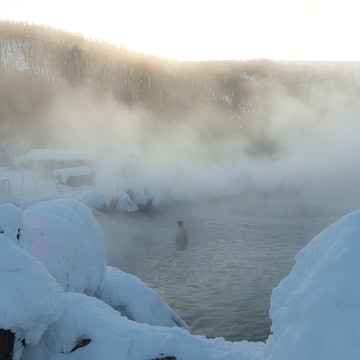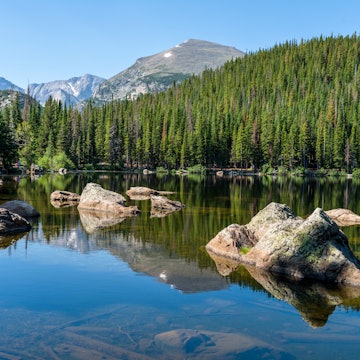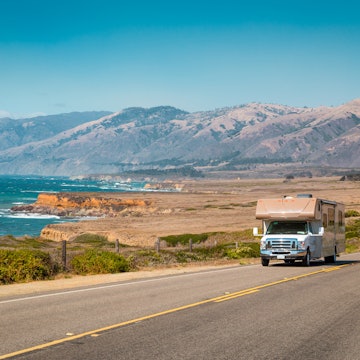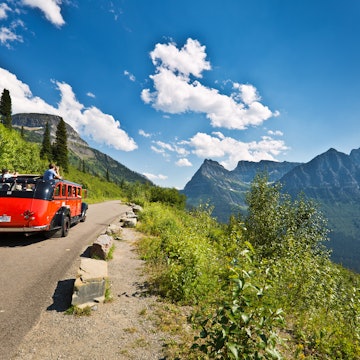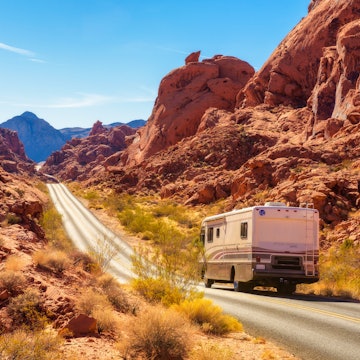

A man mountain biking in Colorado in springtime. Whit Richardson/Getty Images
Colorado is the sweetheart of the Rockies, a place that showcases the natural beauty of the West, from mountain peaks and aspen forests to river valleys and high-desert mesas.
Granted, some of the main attractions in Colorado are anything but cheap – a ski vacation in the Rockies can cost you a pretty penny – but the state also has plenty of affordable activities, and some don’t cost a dime. There are bargains to be found with accommodation and you can find deals on high-ticket items if you know where (and when) to look.
These top tips will help you plan the ultimate budget trip to Colorado.
Time your visit to Colorado carefully
While no one month is the cheapest time to visit – that will depend on your desired itinerary – spring and fall are generally the most budget-friendly seasons to visit Colorado. From April to May (aka mud season), prices fall as the ski crowd melts away in search of colder climes. October and November bring another lull as the temperature drops and the fall colors start to disappear. In mountain towns especially, offseason means a slash in rates – sometimes up to half off – for everything from hotels and guided excursions to spa treatments and even pints of beer.
Fly to Denver
Denver International Airport (DEN) is the region’s hub and one of the busiest airports in the country, with direct flights to hundreds of destinations. Fortunately, the large number of flights means lots of opportunities for deals, especially with low-cost airlines like Frontier and Spirit.
If you’re headed further afield, several smaller commercial airports are located throughout the state, such as Northern Colorado Regional Airport. Flights are typically more expensive (and often involve connecting through DEN), but they let you avoid the cost and hassle of renting a car or taking a shuttle from Denver. It’s worth crunching the numbers for the total door-to-door cost before booking any flights.
Don't rent a car at the airport
Traveling by car is the most enjoyable way to see Colorado, with mountain vistas and historic towns seemingly around every bend. But car rentals don’t come cheap, often starting around $60 to $70 per day from many state airports. However, prices drop significantly if you book to pick up in town, which cuts out hefty airport taxes and fees. A quick cab ride to the nearest town’s rental agency can save you hundreds on a week-long trip.
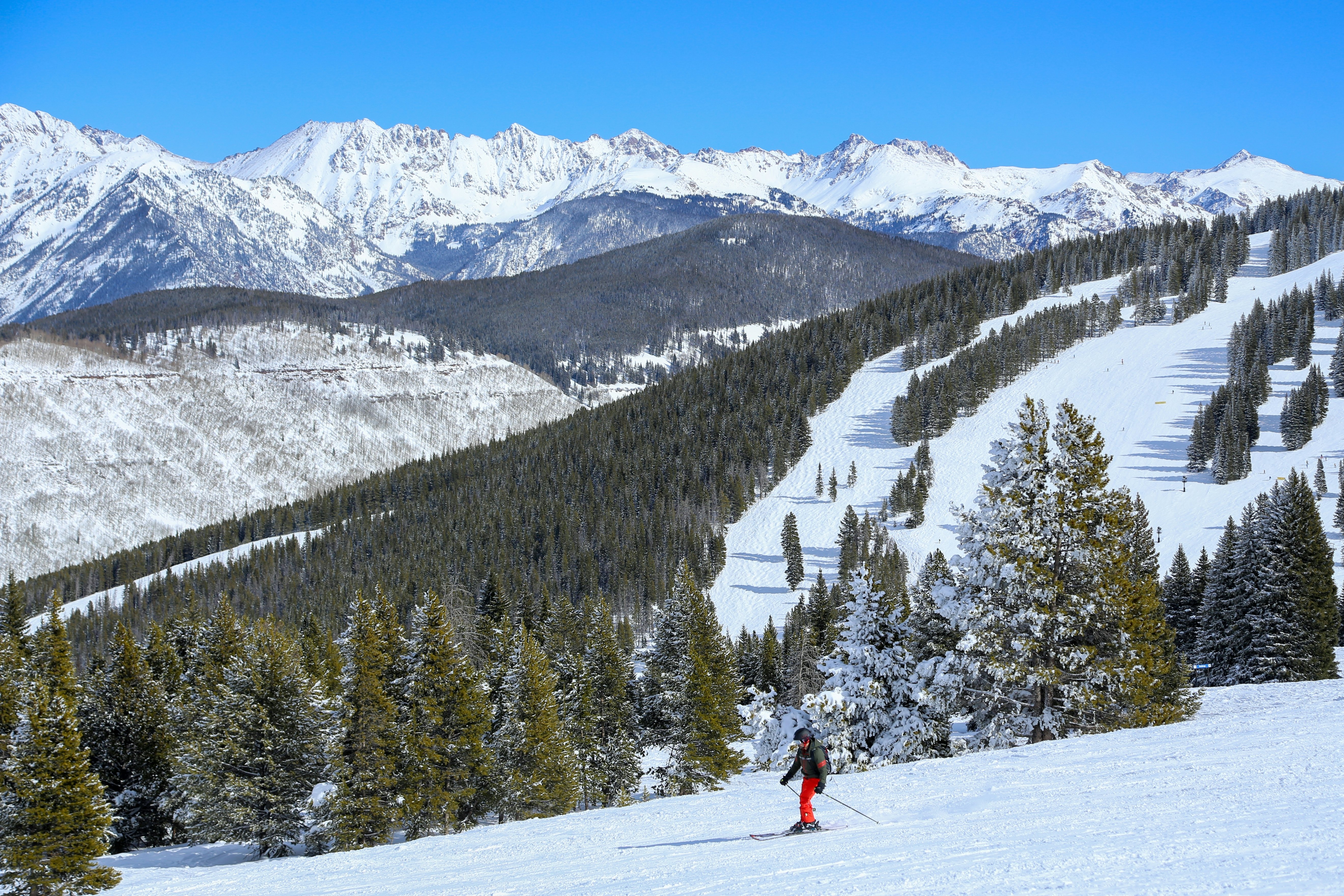
Take a shuttle to ski towns from Denver International Airport
If you’re traveling solo or in a small group, it can often be cheaper to take a shuttle to the mountains instead of renting a car. Epic Mountain Express and Summit Express provide door-to-door shuttle service from DEN to Aspen, plus the major resort towns along I-70, including Vail, Beaver Creek, Copper, Breckenridge and Keystone.
Resorts provide free bus service around town and to nearby ski resorts. If you need a car for a day or two, you can always rent one there.
Consider staying in a hostel
A growing number of Colorado’s cities and mountain towns have modern hostels, which cater to travelers on a budget but feature chic designs and boutique amenities. Most offer private rooms with shared bathrooms, though dorms are where it’s at if you’re looking for the ultimate bargain.
Rates often include breakfast, and hostels usually have kitchens for making your own meals, which helps save on food costs. For hostel leads in Colorado, check out Hostelworld.

Go car camping
Car camping is one of the easiest and cheapest ways to experience Colorado. What better way to take in the state’s magnificence than to be surrounded by it?
With hundreds of private and public campgrounds offering budget-friendly overnight stays, it’s easy for travelers to drive in and set up camp in many places in Colorado. Most campgrounds have shared bathrooms and fire pits. Some even have showers and camp stores.
Campgrounds can fill up fast, especially on summer weekends, so make reservations in advance to guarantee a spot, both for federal lands and state park campgrounds.
Pitch your own tent in the backcountry
If being out in the wild is more your pace – no one around and no amenities – dispersed camping is the way to go. This back-to-basics camping style is absolutely free and permitted on federal lands away from established campgrounds. With almost 23 million acres of public land in Colorado, the state has countless options in national forests and Bureau of Land Management (BLM) areas.
Stop at ranger stations or a BLM office for maps. Most dispersed camping areas are accessible by dirt roads and marked with tent symbols. Pack out everything you pack in, and remember to bring a WAG bag or shovel to bury your poop!

Shop at grocery stores and farmers markets
Dining out in Colorado can add up fast, so plan on prepping your own meals. Don’t sweat it if you don’t have a kitchen in your accommodations, you can stock up on ready-made meals, snacks and fruit at local grocery stores and farmers markets. It’s remarkable how filling sliced salami, bagged salad and a baguette can be, plus you’ll save a bundle.
If you’re in Denver, there are a few farmers market options, including Colorado Fresh Markets in Cherry Creek and City Park Farmers Market. The Boulder County Farmers Market is one of the more popular if you find yourself north of Denver on a Wednesday or a Saturday. And if you’re visiting a mountain town, such as Crested Butte or Vail, there are plenty of opportunities to buy local food and art.
Get rustic in a backcountry hut
If you love the wilderness but also love a roof over your head (and maybe even electricity), consider staying in a hut. Colorado has an extensive system of backcountry huts that are accessible year-round by trails and fire roads. Some are basic dry cabins, while others are nicer affairs with solar-powered lights, wood-burning stoves and composting toilets.
Check 10th Mountain Division Hut Association and San Juan Hut System for options and reserve early for winter stays.

Make enquiries about discounts
There's no shame in the game of asking about discounts. Tickets for museums, tours and transportation often cost less for children, sometimes as much as half off the regular rate; ditto for students, seniors and military personnel. Speaking of kids, there are many family-friendly activities in Colorado with discounts for younger children.
If you’re traveling to Denver, consider purchasing a CityPASS, a prepaid ticket package that offers significant discounts for some of the city’s top attractions.
Museums around the state often offer a monthly free day. The Denver Museum of Nature & Science generally has one to two free days or nights per month when anyone can enter the museum without a reservation. Additionally, all children under 18 can get in for free anytime at the Denver Art Museum.
Buy an America the Beautiful Pass
Colorado is home to four national parks – Rocky Mountain, Mesa Verde, Great Sand Dunes and Black Canyon of the Gunnison – which all have spectacular vistas, opportunities to spot wildlife, geological marvels and echoes of ancient civilizations. Each park is vastly different from the others, but all are unmissable for their hiking trails, scenic drives and outdoor adventuring.
Admission costs $25 to $35 per vehicle. If you know you’ll be visiting more than two national parks, it’s worth buying an America the Beautiful Pass ($80), which includes entry to all of the national parks in the whole country for a year. The pass also includes admission to all federal recreation lands, including Colorado’s eight national monuments.
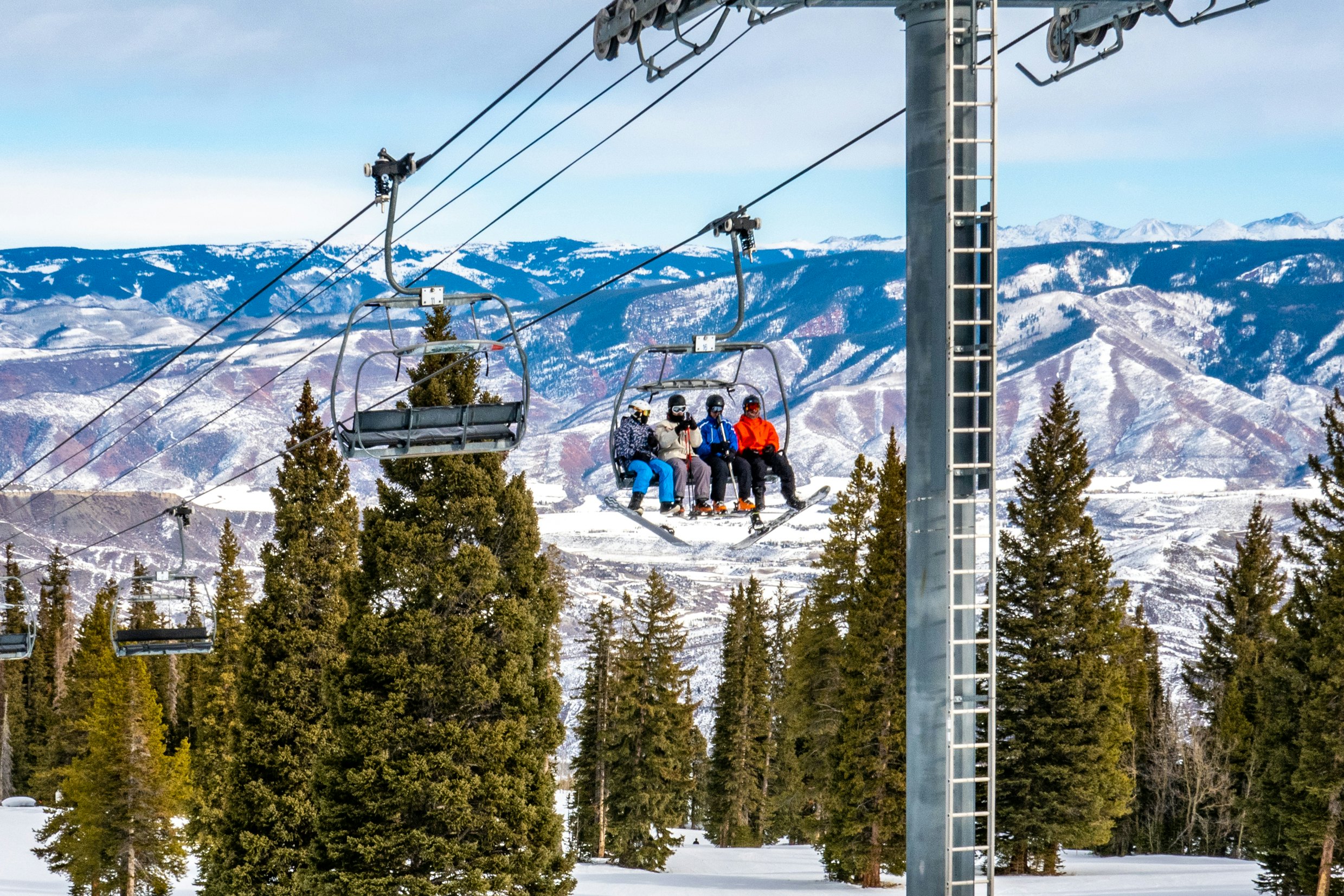
Find skiing and snowboarding deals
Colorado is one of the most expensive ski destinations in the country, with single-day tickets pushing $225 at some resorts. If your heart is set on it, skiing and snowboarding can be cheaper at certain times of the year. Avoid peak ski season during February to March, and look for early or late winter deals for skiing and snowboarding. Going midweek or late in the season often means lower lift-ticket prices. Many resorts also offer half-day tickets.
If you’re hitting the slopes for only a day or two, you can save a few bucks by buying your tickets online. If you’ll be skiing or riding for three days or more, it might be cheaper to buy a multiday “pack” (usually good for three to five days) or even a full season pass. It may sound excessive, but buying day passes adds up fast.
Check out the various Epic and Ikon options, most of which can be used at multiple resorts, but read the fine print for restrictions and blackout days. For the best rates, buy before Labor Day (the first weekend in September).
Daily costs
Ski-town shuttles: Free
Lift tickets: $80–229
State park campsite: $13–41
Hostel (dorm bed): $15–120
Hotel room: $390 on average
Self-catering rental: from $1450
Cup of coffee: about $3
Dinner at a restaurant (without drinks): $120 on average
Pint of beer: $5–10









